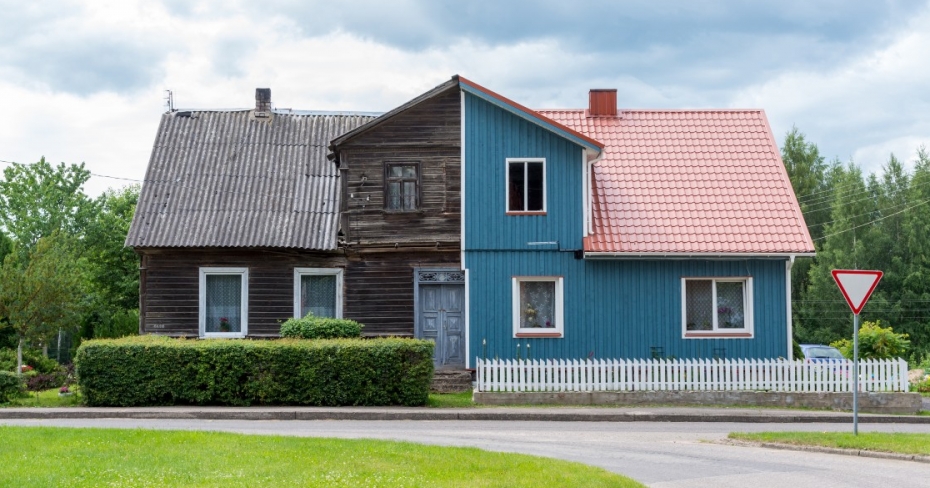What does it mean to be house poor?
By: Sadaf Ahsan on February 9, 2023
This article has been updated from a previous version.
As the world slowly returns to normal — a new one, anyway — and inflation remains persistent, some might be finding it difficult to cope with unseemly debts.
Despite there being a house-buying frenzy in Canada during much of the pandemic— thanks in part to incredibly low mortgage rates — reality has now set in as rates have risen eight consecutive times in the last year.
According to a December 2022 report from Equifax, Canadians are carrying a hefty $2.36 trillion in consumer debt, with average non-mortgage debt rising to $21,183 per consumer — the highest level since 2020.
With mortgage rates having risen steadily over the last year, those with a variable-rate mortgage are feeling the effects. For those on a fixed-rate mortgage, it depends on how long you have until your term comes up for renewal, but you’re almost guaranteed to pay more in interest than you did when you first got your mortgage.
While the term house poor gets thrown around a lot in discussions on the housing market and personal finance, what does it mean? And as a recent or aspiring homeowner, how can you avoid becoming house poor?
How does one become house poor?
A house-poor homeowner is someone who doesn't have much (or maybe any) money left over each month after paying their home-related bills.
Generally speaking, your mortgage payment should amount to about 25% of your monthly take-home pay. This number can go up to 30% if you don’t have debt. But if you’re spending significantly more than that on mortgage payments, property taxes, utilities, and general maintenance, you might be house poor. In other words, you're spending more than you probably should on your home.
Or maybe you've run into unexpected circumstances, like a job loss. Either way, there's an imbalance and your house is weighing you down. It’s possible to find yourself in this situation if you purchased a home outside of your means, if you didn't account for all the utility and maintenance costs that would come with it, or if your interest rate has risen significantly and you can no longer handle payments. Any of these circumstances might result in you depleting your savings. Eventually, this could put you in a position where you go into debt for anything from buying groceries to making car payments.
How can you avoid becoming house poor?
The key thing to do before buying property is to always do your research. And then do it again. An emergency fund for if and when you run into trouble is always beneficial, as is paying off other debts before buying.
It also never hurts to ask for help and get a second opinion by working with a financial planner. They can walk you through the basics, including your budget and the kinds of short-term and long-term costs you might run into after becoming a homeowner.
David O'Leary, founder of Etobicoke-based financial planning company Kind Wealth, advises prospective buyers to evaluate if buying a home right now is the right thing for them.
"Oftentimes, we get caught up in the race or the pressure of the real estate market,” he says. “But whether it's right for you to buy a home or not depends on your particular circumstances.”
“As property prices continue to escalate, the economics of buying a home start to become more tenuous. After a while, you might start to wonder, 'Is this worth the price that I'm paying?' and that's a difficult question to answer."
For the record, he says if you're spending 50% of your monthly net pay on your mortgage, you're in trouble.
Is there a way to get out of being house poor?
If you are currently house poor, first, take a breath. See if there are expenses you can cut, sacrifices you can make, or if you have additional ways of adding to your income (i.e. picking up more work, or maybe renting out a room or basement).
"Selling the property is a possibility," adds O'Leary. "If you sell, you might get a price that is high enough to cover all your costs. And then, consider downsizing or even renting. I've seen many people in challenging situations where there's only so many tips and tricks, only so far you can go when you've really over-leveraged yourself."
If you do choose to sell, there is an upside: you can find a home in a more affordable neighbourhood, for example, and not have to cut back on other expenses or adjust your financial goals as you’ve had to before. Whatever you do, just don't wait until the last possible moment when you're especially desperate — act now.
Interested in creating content with LowestRates.ca? Reach us at email@lowestrates.ca.


